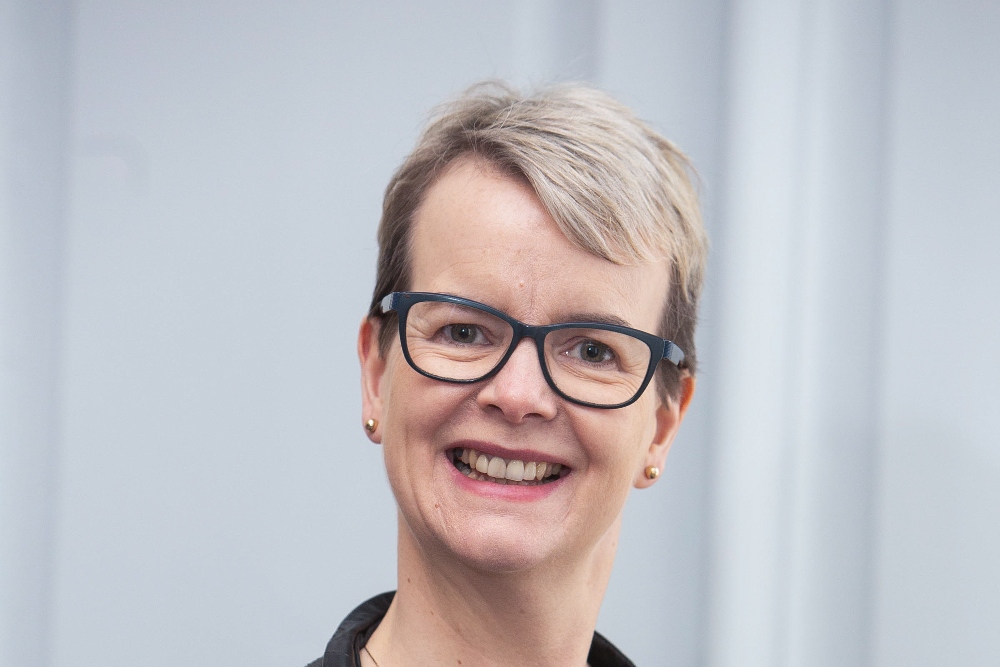Ireland isn’t just the digital capital of Europe, it is very much the place where the future of work is being devised. John Kennedy talks to Prosperity’s Gary Mullan.
The annual salary survey by Prosperity is a go-to bellwether for assessing the state of the digital sector in Ireland. Each year it offers an insight into the hiring trends, the kind of jobs (many of which didn’t exist five years ago) but overall it gives a glimpse into the trajectory of Ireland’s digital ambitions.
Prior to the pandemic hitting last year, the biggest problem was accommodation and spiralling rents as Dublin maintained its position as a magnet for tech investment. Post-pandemic Ireland’s key cities of Dublin, Cork, Limerick and Galway are still where the digital action is at, and the future of work is at the heart of the action.
“I think many Irish employers have provided unforeseen amounts of flexibility, not just in terms of remote working, but also in terms of location, time off, working hours and job sharing”
The report, which interviews CEOs and hiring managers in the digital sector, has found that 69pc of digital employees are expecting a payrise in 2021.
It found that for digital employees, career progression and salary are more important than being allowed to work from home post-pandemic.
In December, 22pc of digital employees said their salaries were lower than before the pandemic.
Just 18pc of workers in Ireland’s digital sector said they would take a pay cut to continue working from home.
But one-third of the 100 digital employees interviewed said they would take a pay cut to work less hours.
The highest paid roles in the digital sector are director of marketing, head of e-commerce, head of search and chief technology officer.
Web developers, SEO executives and PPC (pay per click) specialists have the fastest-growing salaries.
We spoke to the CEO and founder of Prosperity about the trends he is seeing.
Has the Covid-19 crisis impacted salary levels in Ireland’s digital media sector?
Yes, when the pandemic hit, many companies in the digital sector cut salaries – usually by between 10pc and 20pc. But, from speaking to CEOs and hiring managers, we gather that most of these salaries have already been restored. We’ve spoken to a few workers who haven’t seen their income return to normal yet, but they’re expecting increases this year.
“When restrictions are lifted, I think most employers will adopt a hybrid approach where staff split their time between the office and their homes”
As a result of changes in behaviour during the pandemic, we’ve seen increased demand for niche expertise and skills in e-commerce, web development and PPC marketing. Ireland was already short on talent in all these areas.
Last year, the cost of hiring an experienced developer went up by around 10pc. This year, we also expect to see smaller salary increases for other in-demand roles. But with sectors like events and hospitality suffering so much right now, we think digital salaries will remain steady overall.
With the majority of digital workers now remote working, is this the new normal for the sector and will salaries be adjusted to reflect this?
When restrictions are lifted, I think most employers will adopt a hybrid approach where staff split their time between the office and their homes. The office is often central to team bonding and creative collaboration, so it’s particularly important for the likes of agencies.
“Lots of companies are subscribing to meditation apps, classes and meal delivery services too”
We don’t envision this will impact salaries though. While working from home can reduce business costs for employers, most of the employers we spoke with don’t intend to increase salaries this year.
We also asked employees in the digital sector if they would be willing to take a pay cut to continue working from home post-pandemic. Only one fifth said they would, and even fewer said they’d reduce their future salary expectations, so digital workers obviously don’t see this as a significant bargaining chip.
Prior to the March lockdown, tech and digital businesses were competing for talent and emphasising their fancy offices and perks such as gyms and food as a way to win talent. In the new remote/hybrid landscape how are they differentiating their offering?
We’ve seen the likes of Dropbox and Teamwork become remote-first companies, which will definitely appeal to some individuals. Onboarding kits have probably become more widespread, as well as more extravagant, too.
Beyond this, we’re seeing perks go online. Microsoft simply moved its entire employee wellbeing programme online – that includes everything from fitness classes to financial planning supports. Another employer I spoke to prioritised online counselling and wellness surveys.
Lots of companies are subscribing to meditation apps, classes and meal delivery services too. Wellness apps like Headspace and SilverCloud Health have seen a spike in Irish users and I’ve come across employers using tools like Office vibe to keep an eye on staff workloads and stress levels. There’s even tools out there purely for providing rewards and recognition.
I have to say, many employers have been really proactive in looking after their staff and this will help them win over talent down the line.
What skillsets are now in hot demand in the digital media and tech sector and what are the fastest growing salaries?
With retailers and shoppers moving online, we’ve seen increased demand for e-commerce experts – who already had some of the fastest growing salaries in last year’s survey.
We expect to see experienced web developers, PPC specialists and SEO experts benefit the most from salary growth this year. While some content writers and other e-commerce talent may see small increases in their wages as well.
Last year, 10,000 e-commerce sites were created in Ireland. At Prosperity Recruitment, we’re seeing lots of demand for mid-level e-commerce and digital marketing talent – and we expect this to continue. According to the eCommerce Association of Ireland, each new website creates or supports three jobs.
Prior to lockdown accommodation and rent was a critical issue for the sector? Has this situation eased up with more people remote working or do you think it will return as things normalise?
The cost of accommodation in Dublin was a huge issue prior to lockdown and people have certainly been moving to more regional locations where the cost of living is lower. Some of them will return to the city post-lockdown, but I think many will continue to work remotely and, perhaps, even put up with a long commute to the office a couple of days each week. All the employers I’ve spoken to intend to keep some level of remote working in place.
How have firms in the sector moved to ensure the psychological safety of workers, especially those from overseas who found themselves no longer in the office and dealing with issues like loneliness or working from a shared apartment?
Like I said, many companies are taking advantage of wellness apps, as well as surveys and tools to monitor employee sentiment and stressors.
Some larger firms have gone even further to offer full wellness programmes online. But I’ve heard many stories of employers who have stepped up to support staff and keep them on throughout the pandemic.
I think many Irish employers have provided unforeseen amounts of flexibility, not just in terms of remote working, but also in terms of location, time off, working hours and job sharing. Whether staff faced childcare issues, bad home office situations or feelings of isolation, they figured out bespoke ways to support them.
I hope this flexibility will continue in future. If discussions around benefits and flexibility are a feature of salary negotiations, both employers and employees are more likely to be satisfied with the outcome.
By John Kennedy (john.kennedy3@boi.com)
Published: 19 January 2021






